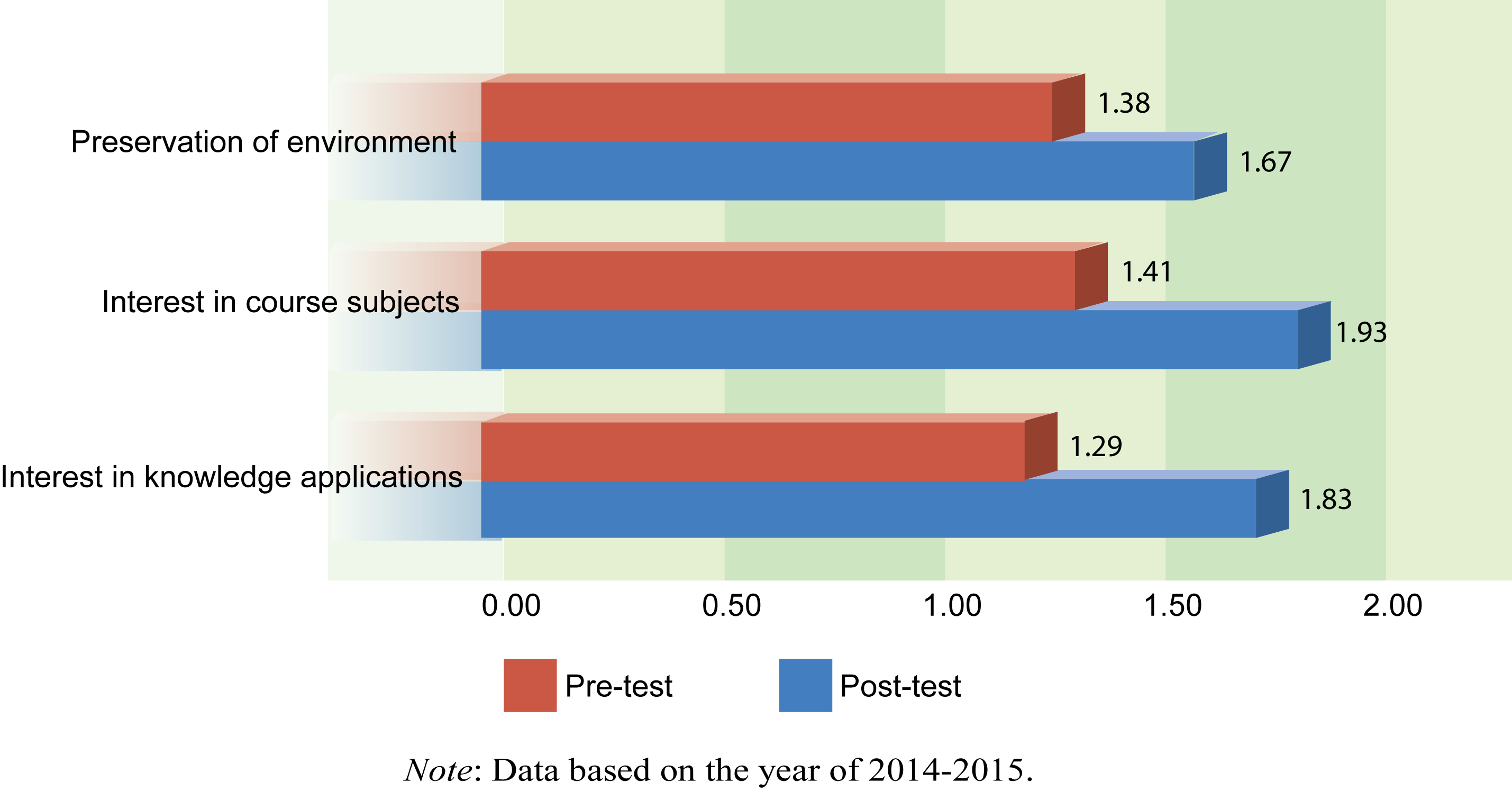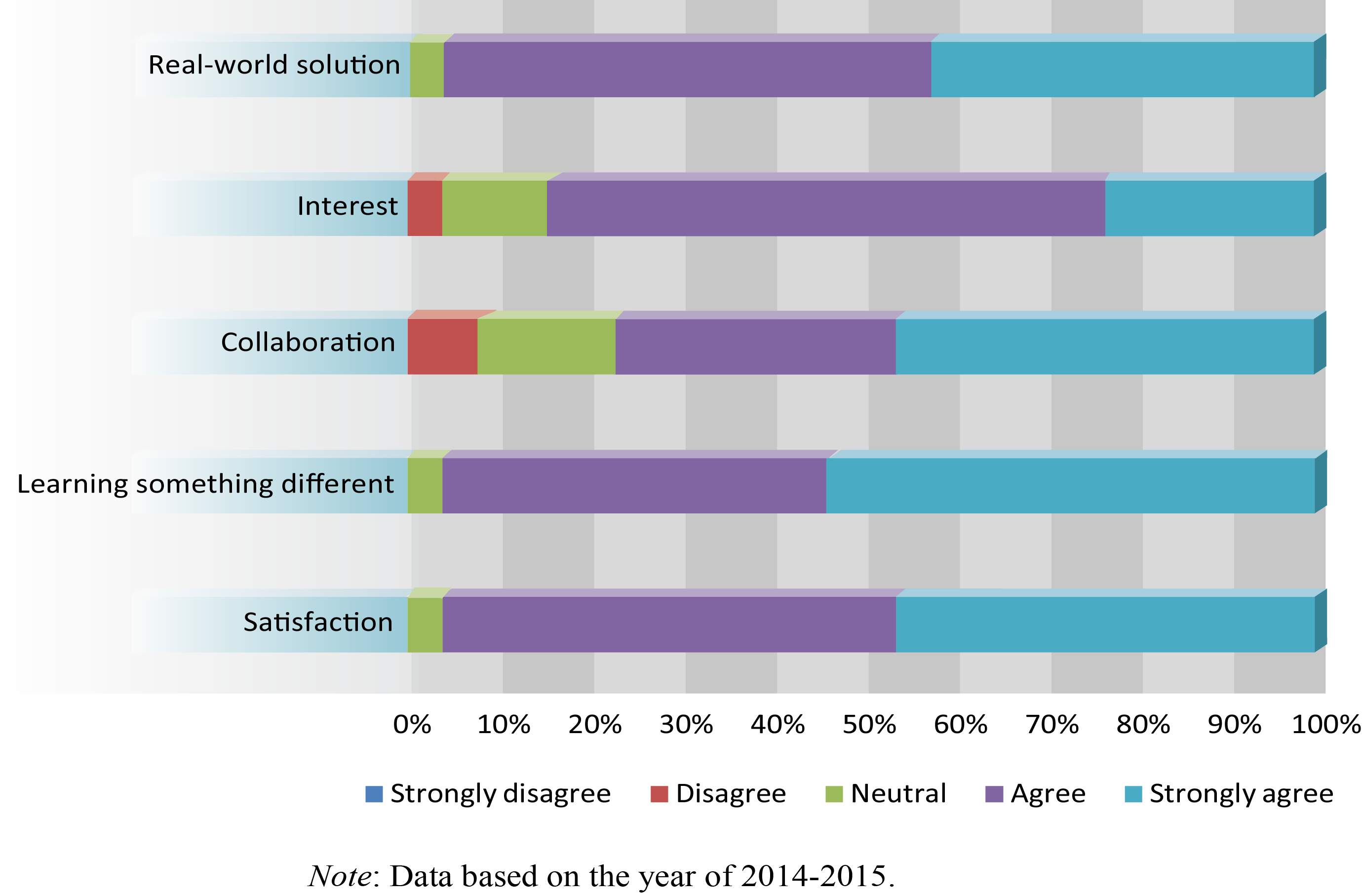How the project changed our students
Compared to the beginning of the project, after the project students reported significantly stronger concern about preservation of the environment. They also reported significantly stronger interest in the course subject and application of the knowledge they had learnt.

How our students evaluated the project
Most students evaluated their experience in the project positively. They agreed or strongly agreed that this project had provided an opportunity to learn something they could not learn through other channels; the involvement of practitioners had been useful; and the project had enhanced their interest in the course subject, and their ability to apply what they had learnt to suggest solutions to real-world environmental problems. Also, they felt satisfied about the project.

What our students said about the project
I like the cooperation with the outside organizations. It gave me more motivation in improving me work. And, it allows me to know more about the views and worries of these organizations.
I like most the opportunity to cooperate with frontline practitioners of NGOs; it gave me new insights about how psychology can be used.
I like the format of the project, which is (to) do presentation directly to the organization. So, I feel myself have direct impact on the environmental issue.
I like the fact that it allows us to deal with real-life situations, not made up scenarios.
What the practitioners said about the project
It is a mutually beneficial project in a way that students would have opportunity to meet practitioners in different sections, while organizations would be able to understand the perspective of the younger generations. The beauty of having idea exchange beyond our own setting – universities/organizations, would be breaking the default perception, internalize learning through application, and ignite new campaigns.
(WWF Hong Kong)I love the way the students were challenged to work on a real-life problem, and that they were expected to come up with real solutions, not theoretical ones. I also liked the fact that the students were urged to think about how to measure their success -- it is not enough just to implement a program; they need to know if it will work. Therefore they need to develop metrics to measure progress and effectiveness
(The HKUST Sustainability Unit)The students had a number of very good ideas that we can use as we put together our strategies. There were a number of suggestions that were very creative. Even if we do not use some of the ideas directly, their recommendations will influence the way we think about how to move forward.
(The HKUST Sustainability Unit)Excellent. We appreciate the students’ efforts in trying to learn more on the marine debris issues. We noticed from the institution briefing that most students may have little awareness on the topic, however, they were eager to learn and open to ask questions. From the presentation, we observed that the students had gained a lot more knowledge on the marine debris subject where their proposed activities matches the objectives as well – that is the conservation actions we want to advocate to the public.
(Ocean Park Hong Kong)The students are very hard working and willing find the best solution for the problem. I think they are not just working for the course or project but really want to contribute to the HKUST green environment.
(Information Technology Services Center, HKUST)